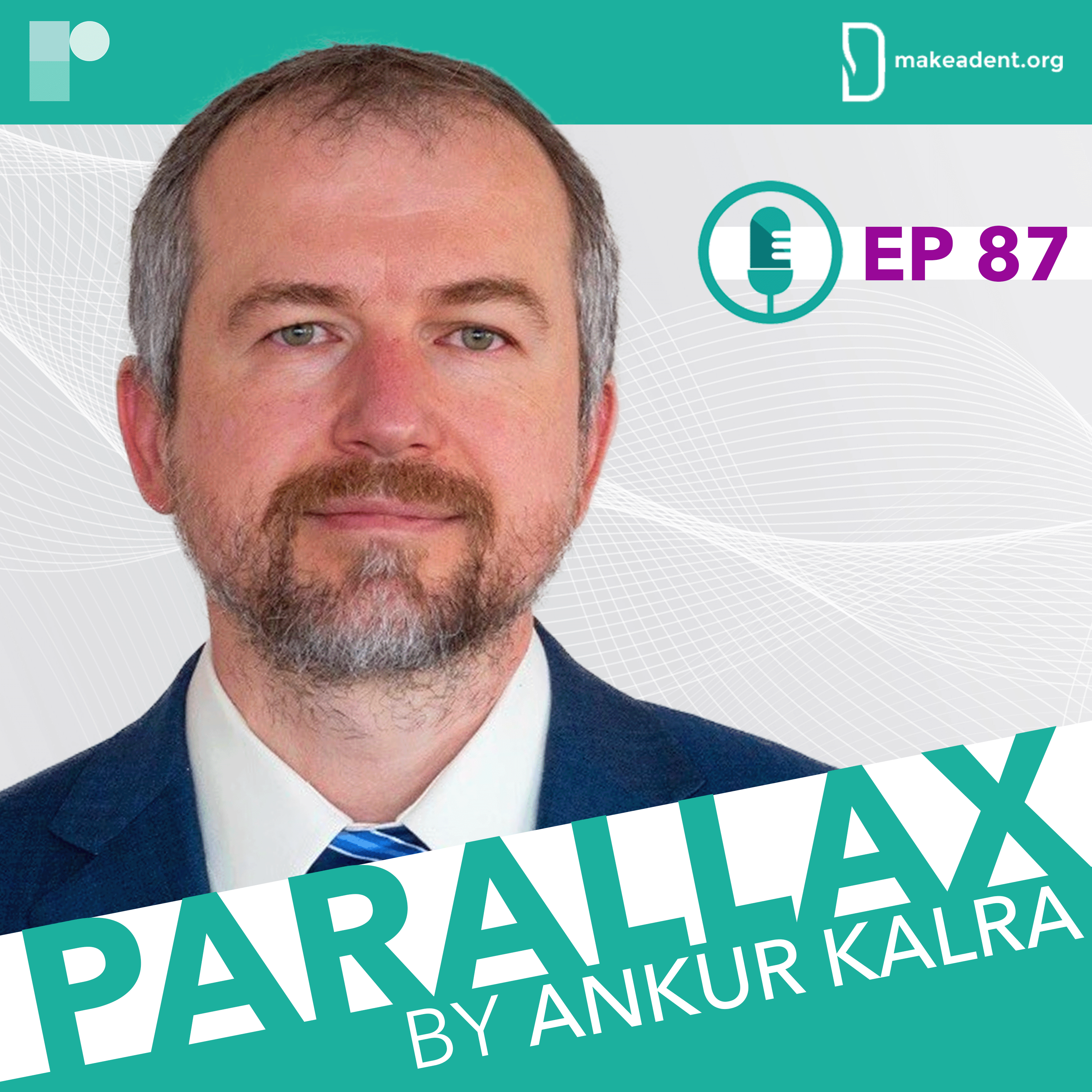
“We're providing about 20,000 different ingredients in our diet to a gut microbiome that has 4 million genes. And they're processing these 20,000 ingredients at a flood of chemicals.”
In this episode of Parallax, Dr Ankur Kalra speaks with Dr. Momchilo Vuyisich, co-founder and chief science officer of Viome Life Sciences.
Dr Vuyisich shares his personal journey with rheumatoid arthritis and how it led him to explore the intersection of nutrition and the gut microbiome function.
He explains how the complexity of nutrition and the compounds generated by the gut microbiome can impact our health. We learn more about three compounds produced by our gut microbiome that have a strong connection with heart disease.
Through this conversation, Dr Vuyisich invites us to reframe our approach to nutrition and prevention as a question of food education and data-driven science.
What is the effect of red meat and processed food on our gut biome? What can we learn about prevention through understanding gut biome function? How can data-driven science help us make informed choices about nutrition and health?
Questions and comments can be sent to “podcast@radcliffe-group.com” and may be answered by Ankur in the next episode.
Guest: Dr Momo Vuyisich, host: @AnkurKalraMD and produced by: @RadcliffeCARDIO.

As Dr Kalra asks Dr Rao about the ways in which early career faculty members can get involved with the organization at a state level. Dr Rao shares his insider tips and highlights key events where individuals can further their participation.
How can you get involved with your local ACC chapter? How can you improve your leadership skills? What is Dr Rao’s advice for our listeners?


US Cardiology Review journal, has recently seen a 7-fold increase in female editorial board members in response to journal-based strategic initiatives and the stellar work of USC editorial board leadership, Ankur Kalra (Editor in Chief) and Bill Gogas (Deputy Editor in Chief), who were keen to drive this change. With thanks to Dr Anastasia Mihailidou’s tenure as a new board member and her suggested nominees, ten new female board members have recently joined US Cardiology Review’s editorial board.

In this episode, Mike opens up about his childhood in Stilwell, Oklahoma. Ankur and Mike discuss how the inductive quality of art can complement the deductive principles of science. Mike recalls earlier stages of his career and warns about the blinding effect of the ego-driven, competitive culture of cardiology. Ankur asks Mike about fatherhood and about his role as an educator.
What does it mean to be fearless as a medical professional? How can you protect yourself from the emotional toll of the profession? What is Mike’s advice to early career cardiologists?
Sponsored by Edwards.

During her interventional cardiology fellowship, Dr Baron became fascinated by the implementation of novel technologies. She earned her degree in Clinical Epidemiology and spent a year working at the FDA’s Device Evaluation unit.
In 2019 Dr Baron presented the results of her late-breaking trial, COAPT. Ankur invites Suzanne to discuss the economic analysis of the study and to give a short introduction to cost-effectiveness analysis. Suzanne provides an overview of the trial and they talk about the importance of understanding the value and benefits of new devices from both the patient and the health-economic point of viewpoint.

How should you start building a research programme? What are Chuck Simonton’s thoughts on the relationship between doctors and the industry? What is Chuck’s message to young cardiologists?

After the #MedBikini campaign provoked by a misogynistic study that scrutinized female doctors’ social media posts, this episode is about creating a safer environment for female healthcare professionals.





